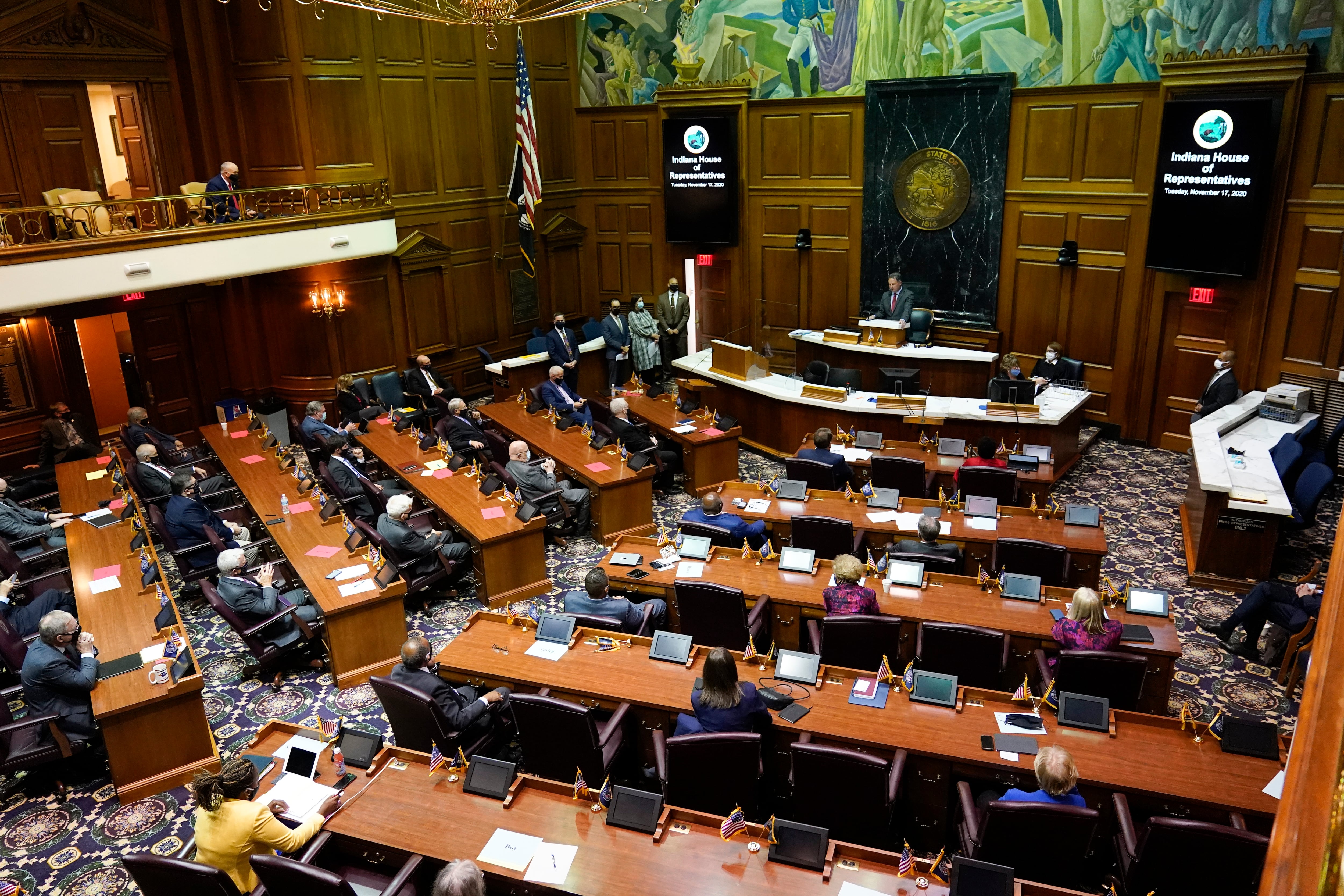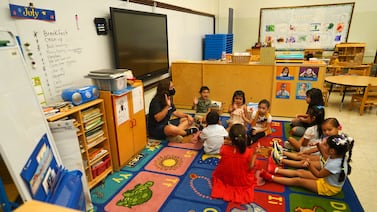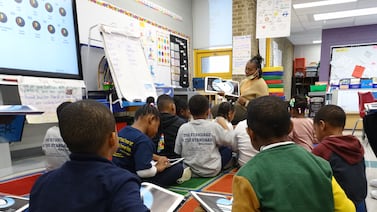Though Indiana’s 2022 legislative session lasted just two months, lawmakers managed to pack the calendar with education legislation.
Some of the most controversial bills that would have imposed restrictions on teachers and libraries stalled and died. But another bill banning transgender girls from participating in girls’ sports is headed to the desk of Gov. Eric Holcomb, who has indicated support for it.
Holcomb has seven days to sign or veto a bill after receiving it, after which it becomes law without his signature.
The other education bills that passed impose more measured changes on teaching and learning, such as one that permits schools to issue permits and hire teachers.
Here are some of the education bills that the state legislature passed this year.
Transgender girls in youth sports: HB 1041 bans transgender girls from participating in K-12 girls sports. The bill passed both chambers of the legislature without amendments despite significant public testimony against it. Among the opponents, the ACLU promised to take legal action should the bill become law. Similar bills in other states are already facing challenges in court.
FAFSA for high schoolers: An attempt to require all Indiana seniors to fill out an application for federal student aid, known as the FAFSA, was significantly watered down. Instead of requiring all high school seniors to fill out the FAFSA, SB 82 now only requires that schools send information about the form to families.
School board public comment: Two bills, HB 1130 and SB 83, require school boards to offer an oral public comment period. During a summer of confrontational meetings, at least one district suspended the practice. The new law requires local boards to allow for public comment before making a final decision on an issue.
Funding adjustments: SB 2 allows schools to receive full state funding for students who were in quarantine during the counting window of the 2021-22 school year. The bill extends the window and allows the Department of Education to retroactively adjust the funds.
Campus free speech: A bill to enshrine into state law First Amendment protections of free speech for college campuses sailed through the legislature this year. Despite unanimous support from lawmakers, some critics questioned why such a move was necessary if those protections were already guaranteed under federal law.
No school A-F grades: The state again will award public schools a “null” or no letter grade for the current school year while the Indiana Department of Education develops a new grading dashboard. The state has not issued schools meaningful A-F grades since 2018 due to the switch to a new state assessment and the pandemic.
Adjunct teacher permits: HB 1251 allows school corporations to issue permits for full- or part-time adjunct teachers who have at least four years of experience in a school subject and pass a background check. Those teachers need not have a degree in education. The omnibus bill also will allow vehicles other than yellow school buses to transport students between home and school — a change sought by charter schools — and orders the State Board of Education to streamline Indiana’s academic standards.
Here are some of the bills that passed one chamber but then failed:
“Divisive concepts” ban: The most hotly debated issue of the session, a bill to regulate classroom lessons on race and racism died after Senate Republicans declined to bring it forward for a vote. GOP legislators did not add any of the bill’s provisions in other legislation, but advocates on both sides expect they may reappear next year.
“Harmful material” protections: A bill to remove legal protections for K-12 schools and public libraries from a law that prohibits distributing harmful material to children almost revived in the final hours of the session. But the Senate voted those provisions down. Proponents said they wanted to eliminate books describing sexual encounters and that could be considered pornographic, but opponents feared the bill could ban a wide range of books, including those about sex education or LGBTQ relationships.
Revenue sharing: HB 1072 would have required all school corporations to share referendum money with charter schools that enroll students who live within that corporation’s boundaries, a controversial provision that’s come up before. Indianapolis Public Schools has volunteered to share some tax proceeds with its charter schools. The bill passed the House, but the Senate appropriations committee declined to give it a hearing.
Special education disputes: HB 1107 would have banned schools from requiring that parents sign a nondisclosure agreement in order to resolve legal disputes related to their students’ special education services. But the bill suffered a unanimous defeat in the Senate that advocates decried as embarrassing.
Aleksandra Appleton covers Indiana education policy and writes about K-12 schools across the state. Contact her at aappleton@chalkbeat.org.







